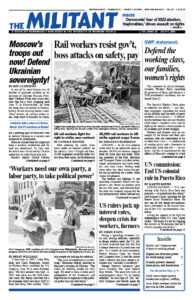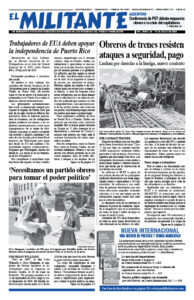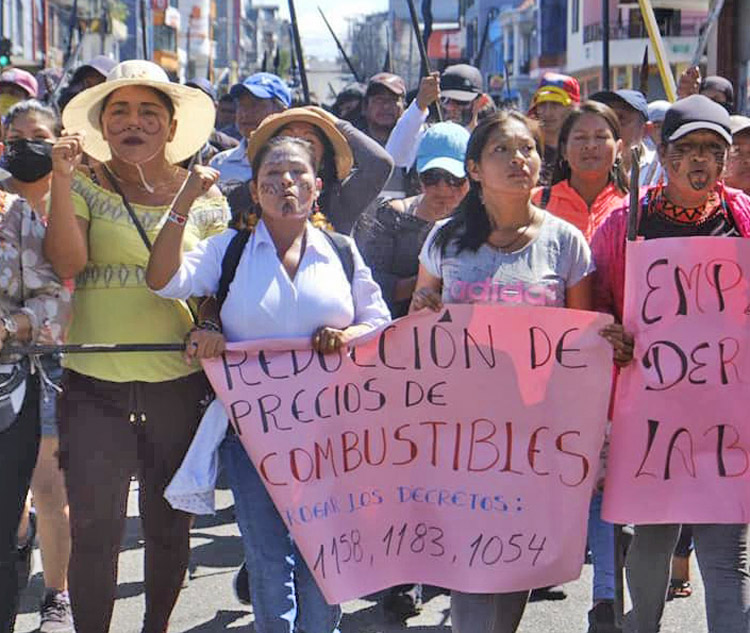After two weeks of sizable daily protests by Indigenous groups, the government of Ecuador has given in to some of their demands and is negotiating with them on others. The protests by thousands of workers and peasants provoked by the impact of skyrocketing prices began June 13, initiated by the Confederation of Indigenous Nationalities of Ecuador (Conaie).
Above is a June 28 march in Quito, the capital, where thousands of Indigenous protesters have camped out. Sign says, “Cut fuel prices.”
At the top of the groups’ list is the demand to roll back the price of fuel. Diesel has nearly doubled in the last two years. On June 27 Ecuador President Guillermo Lasso cut fuel prices by 10 cents a gallon and lifted the state of emergency he had declared in six provinces. The moves “are not enough,” but are a sign that the movement is making gains, Conaie and other Indigenous groups said in a statement.
Crude oil accounts for nearly half of Ecuador’s export earnings. While profits go up for the oil companies, higher prices of everything from fuel to fertilizer and cooking oil are battering working people. Nearly one-third of the population lives on less than $3 a day.
The protesters demand debt relief for working farmers, including a cut in interest rates and a moratorium on home, farm and vehicle foreclosures; “fair prices” for farm products; government jobs programs; and a moratorium on new oil drilling and mining.
Protest roadblocks on major highways have virtually paralyzed Quito. Violent clashes with riot police and soldiers, including near the National Assembly, have left five protesters dead and hundreds injured.
“Look around you. You will see some who are whiter, some who are blacker,” Conaie leader Leonidas Iza Salazar said at a mass meeting June 27, answering the government attempts at dividing Indigenous communities in the countryside from working people in the cities. “Our struggle is multicolored, it’s intercultural.”


